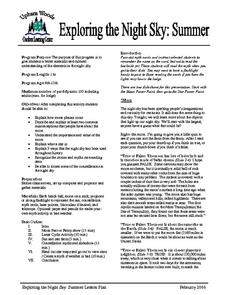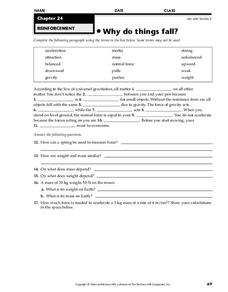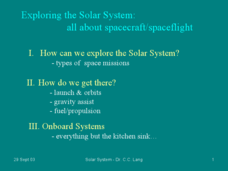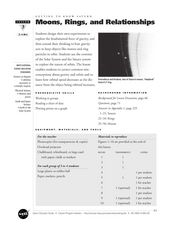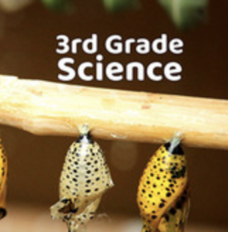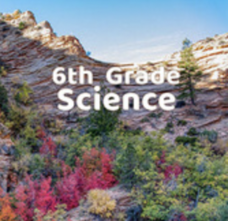PHET
My Solar System
Orbit diagrams appear to be a work of mathematical art. The simulation helps scholars build their own systems of planets, stars, moons, etc., to observe their orbits. By altering their positions, velocities, and masses, a variety of...
Curated OER
How Do Things Fall?
Students study forces by examining the force of gravitational attraction. They observe how objects fall and measure the force of gravitational attraction upon objects. Students discover that, since gravitational constants are different...
Curated OER
Our Solar System
In this solar system worksheet, students complete a database comparing the 9 different planets' mass, surface temperature, rotation period, orbital period, moons, and distinguishing features. This worksheet is a graphic organizer.
Curated OER
Exploring the Night Sky: Summer
Students explain how moon phases occur. They describe and explain at least two common misconceptions that people have about the moon. Students explain what a star is. They explain 3 ways that the night sky has been used throughout history.
Curated OER
Why Do Things Fall?
In this universal gravitation learning exercise, students fill in the blanks to complete sentences with 11 given terms about gravity, inertia, acceleration, mass and force. Students also answer 7 questions about mass, weight and force.
American Museum of Natural History
What Do You Know About Astronomy
Develop an understanding of the universe. Learners answer 10 multiple choice questions about several topics in astronomy. Questions contain information about the age of the universe, gravitational attraction, galaxies, planets and comets...
Curated OER
Exploring the Solar System: All About Spacecraft/Spaceflight
Rarely do you find resources that reach high school astronomy learners. Here is something at their level! The physics of flyby missions is explained via several examples. Landing, penetrating, and roving spacecraft are examined. Diagrams...
American Museum of Natural History
What is Astronomy?
Go study the universe. Pupils learn seven aspects about astronomy and astronomers. They begin to learn about constellations; distance and motion between objects; gravity; the electromagnetic spectrum; dark matter and energy; and teams of...
Curated OER
Ocean Waves and Tides
In this ocean waves and tides worksheet, students match 12 given terms to their definitions related to tides, gravity, the structure of waves and the moon. They also label 4 diagrams of the moon and sun as creating spring or neap tides.
Curated OER
Mass-to-Weight Problems
In this mass instructional activity, students calculate the weight of an object on Earth compared with the weight of that same object on the moon. This instructional activity has 10 problems to solve.
Scholastic
Study Jams! Tides
The tide will turn in your earth science or oceanography unit when viewers see this clip. They learn that tides are caused by the gravitational pull of our moon, and are even impacted by the gravity of the sun. High, low, neap, and...
Curated OER
Earth, Moon, and Sun
In this earth, moon, and sun orbits worksheets, students will read the cause of four different events that focus on the earth's rotation around the sun and the moon's rotation around the earth. Then students will write in the effect of...
Curated OER
Earth, Moon and Sun Assessment Test
In this space science instructional activity, learners answer 14 essay questions pertaining to the Earth, moon, and sun and their relationship. Prior knowledge is assumed, or this could be a pre-test.
Curated OER
Getting to Know Saturn: Moons, Rings, and Relationships
Students identify the different objects that orbit Saturn. In this space science lesson, students plot the graph of orbital speed and distance. They explain why planets and asteroids remain in orbit around the sun.
Utah Education Network (UEN)
Utah Open Textbook: 3rd Grade Science
How do we interact with Earth? Scholars learn about the sun, Earth, moon, forces, gravity, and heat sources by reading a text and performing hands-on demonstrations. They also differentiate between living and non-living things using...
Vosonos
Interactive Minds: Solar System
Travel through space as you learn about the galaxy, solar system, planets, and much more. An extensive resource for studying astronomy in upper-elementary and middle school classrooms.
Curated OER
Unit VI: Worksheet 1 - Constant Force/Gravitational Force
Seven problems regarding gravitational pull are presented in this physics drill. Pupils solve for displacement, time, speed, and acceleration. Critical thinking and problem solving skills are both required to complete the assignment.
Utah Education Network (UEN)
Utah Open Textbook: 6th Grade Science
There are many interactions among living things and their surroundings. By completing a reading, scholars learn about the Earth, the moon, and the sun and how they relate to the solar system. They also investigate the basics of physical...
NASA
Touchdown
Just how do astronauts stay safe during moon landings? Here's an activity that allows investigators to use the engineering process to explore how shock absorbers protect astronauts during landing. Applying knowledge of gravity, force,...
Curated OER
Gravity - Do Some Research
In this gravity research worksheet, students read the questions and then complete research on gravity, gravity and the Sun and Moon, and all the planets' pulling forces.
Curated OER
Do Some Research: Gravity
In this gravity research worksheet, students read the sentence and use a library or the Internet to find the answer and write it on the blue line. Students must then write a report about this topic: if you weigh 60 pounds on Earth, you...
Curated OER
Pendulums on the Moon
Students conduct experiments to determine if length, mass, or starting angle has any effect on the rate of a pendulum's swing. They also conduct an experiment online to determine if gravitational force plays a role in the swing. Groups...
Curated OER
Astronomy Test
In this astronomy test, students answer 50 true/false and multiple choice questions about the relationships of the earth, moon, and sun. The test also includes questions about the solar system, galaxies, and the universe. An answer key...
Curated OER
The Tides of Change Worksheet (Part 2)
In this tides worksheet, students visit specified websites to view information. They explore the mass of the sun and moon, the force of gravity between two objects, and the ratio of the distances from the earth to the sun. Students...





